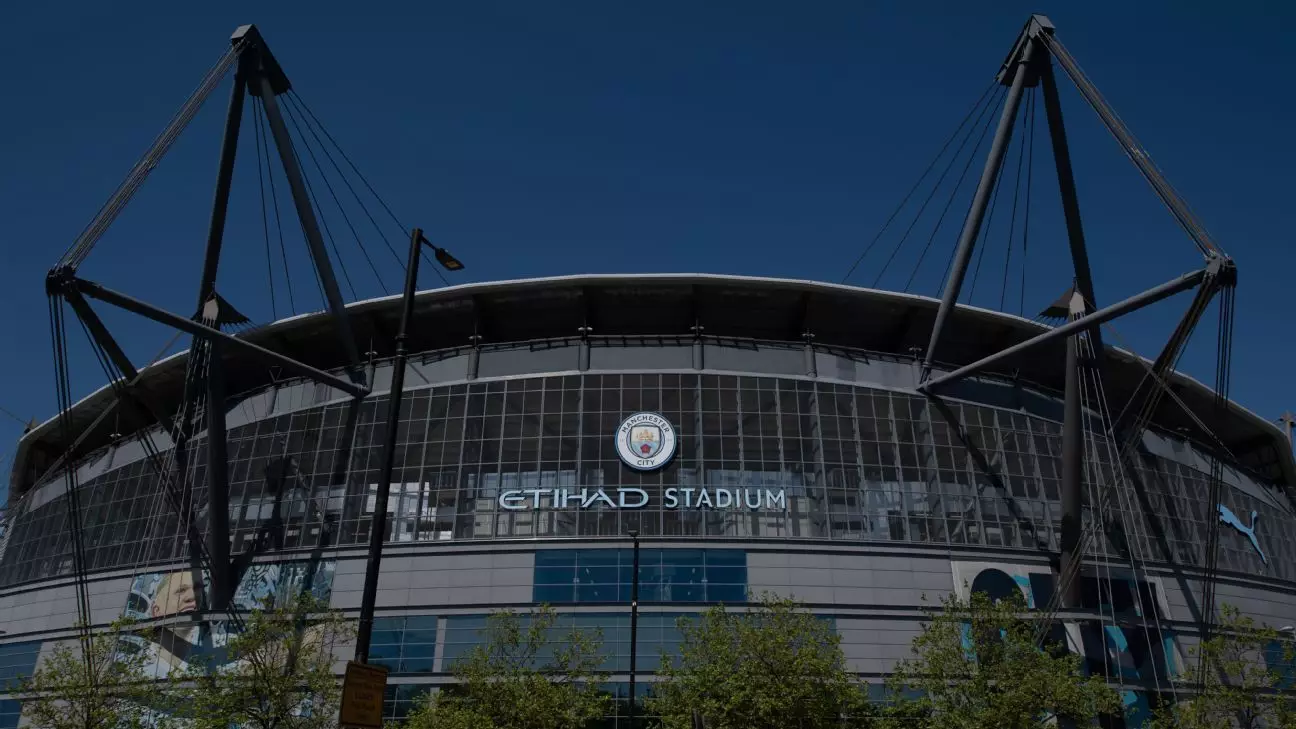The recent conclusion of Manchester City’s legal challenge against the Premier League concerning the Associated Party Transactions (APT) rules has sparked a whirlwind of interpretations and implications in the footballing world. The case, situated in a highly charged atmosphere of scrutiny and regulation, raises pertinent questions about fairness, competition, and the financial underpinnings of club ownership. Both Manchester City and the Premier League have sought to frame the outcome as a victory, leaving observers to sift through the complexities of the ruling to decipher its true significance.
To contextualize the ongoing conflict, it’s crucial to grasp the essence of the APT rules. Implemented in December 2021, these regulations emerged from a desire to create a level playing field in the Premier League, particularly after the controversial Saudi Arabia-led takeover of Newcastle United. The rules are designed to regulate commercial dealings that involve club ownership, particularly when wealth from owner-associated entities could inflate club revenues through inflated sponsorship deals.
Manchester City’s challenge against these rules stemmed from concerns that they unfairly targeted clubs owned by Gulf state entities. Owned by Sheikh Mansour bin Zayed al Nahyan, Manchester City was seen as a primary subject of scrutiny under these regulations. The APT aimed to ensure that sponsorship deals reflect fair-market value (FMV) and discourage clubs from capitalizing on financial advantages through associations with their owners. A prime example is City’s sponsorship arrangement with Etihad Airways, which has been scrutinized for its generous valuation compared to other clubs’ sponsorship deals.
The arbitration panel’s findings, delivered in a comprehensive 175-page document, offered a nuanced perspective on the legitimacy of the APT rules. While the panel recognized the APT system as an essential component of the Premier League’s regulatory framework—thus validating the premise behind the regulations—it also identified certain elements as unlawful. This duality in judgment has led to conflicting interpretations by both Manchester City and the Premier League.
The panel dismissed City’s claim regarding discrimination against Gulf region club owners, affirming the impartiality of the APT rules. However, it simultaneously acknowledged that the current regulations lacked provisions for shareholder loans, which are interest-free financial contributions from club owners. The ruling stipulates that future iterations of APT rules must incorporate these loans to adhere to the Competition Act of 1998, fundamentally altering the financial landscape for various clubs.
The ramifications of this verdict extend beyond merely Manchester City and the Premier League. The ruling has opened the door for a reevaluation of transactions that may have been previously dismissed under the old, now deemed unlawful, APT regulations. Other clubs that similarly received approvals for associated party transactions might now feel emboldened to contest the legitimacy of decisions made against them, setting a potential precedent for legal challenges across the league.
Moreover, integrating shareholder loans into the APT framework poses significant implications for several clubs that have relied on such financial practices for operational stability. The inquiry into whether these loans provide an unfair advantage could lead to a shift in club financing strategies, impacting their competitive integrity in the league.
While both Manchester City and the Premier League are celebrating their respective victories in the arbitration panel findings, observers must be cautious about jumping to conclusions regarding the long-term impact of this case. Although City has successfully challenged aspects of the APT rules, the broader regulatory framework remains intact, allowing the Premier League to maintain its regulatory authority over associated party transactions.
Looking ahead, the upcoming independent hearings concerning Manchester City’s alleged breaches of 115 Premier League regulations loom large. The challenges they face in discrediting the league’s case against them could overshadow the current narrative surrounding the APT ruling. Should City emerge favorably from these hearings, the discussions surrounding the meaning of “victory” in this particular case would likely gain even more complexity.
In the end, the verdict of this arbitration is likely to result in mere procedural amendments rather than substantive changes to the competitive landscape. The minor adjustments to the APT rules concerning shareholder loans may indeed provide Manchester City with a reprieve but will not transform the overarching dynamics of football finance. As the dust settles, the APT rules will persist, and the Premier League’s authority will remain, albeit with a revised understanding of how shareholder loans fit into the regulatory puzzle.
The intersection of law and sports finance continues to evolve, leaving participants to navigate the intricate regulatory landscape while striving for fairness and sustainability in one of the world’s most competitive leagues. The final chapter of Manchester City’s legal saga remains unwritten, as the dual realities of celebration and caution underscore the complexities that abound in professional football’s financial labyrinth.

